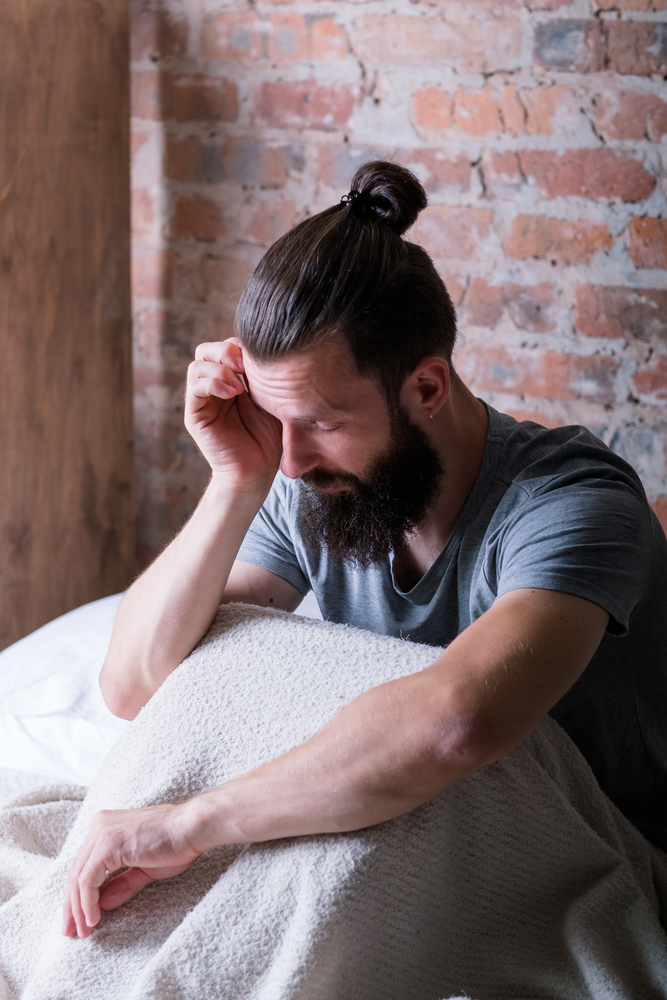As one of the cheapest and more readily available illicit drugs in the US, heroin use is on the rise. Heroin is an opiate, a substance that causes your brain to release dopamine. It’s easy to get addicted to heroin as you require more and more of it to achieve the same high. To make matters worse, more potent – and dangerous – forms of heroin are now available, including versions laced with fentanyl. Long-term side effects of heroin addiction include impaired decision-making abilities, memory loss, depression, anxiety, moodiness, breathing difficulties, liver or kidney disease, heart damage, heart disease, and the potential to overdose.
Heroin is a highly addictive opioid drug that causes many harmful effects and has high overdose rates. According to the Centers for Disease Control & Prevention (CDC), heroin accounted for over 19% of all opioid overdose deaths in 2020.
Quitting heroin on your own can be difficult, especially if withdrawal symptoms kick in. Professional opioid addiction treatment can help you overcome your substance abuse issues and sustain long-lasting recovery.
Understanding Heroin Addiction
Heroin is an opiate derived from morphine that produces highly pleasurable mental effects. It can be smoked, snorted or injected into the vein. Injection is the most dangerous method and can increase the risk of overdose. However, heroin travels to the brain quickly no matter how it’s taken and can become addictive after only a few uses.
Heroin activates opioid receptors in the brain, creating a rush of euphoria and altered pain perception. This rewarding feeling can reinforce continued heroin use and lead to an opioid dependence. When someone becomes physically dependent on a drug, it means their brain is accustomed to a certain level of the substance, and withdrawal symptoms may occur once drug use stops.

The Risks and Dangers of Heroin Abuse
Continuous substance abuse can lead to heroin tolerance, meaning you’ll need to take larger and more frequent doses to obtain the same high as before. However, the more heroin you use, the more likely you are to overdose. A heroin overdose can be fatal without immediate medical attention. Signs of a heroin overdose include:
- Uncontrolled vomiting
- Loss of consciousness
- Drowsiness
- Choking or gurgling noises
- Shallow breathing
- Slowed pulse
- Low blood pressure
- Respiratory arrest
How heroin is consumed can also cause dangerous side effects. For example, injection produces a more intense high and increases your risk of skin infections, cardiovascular issues, and various blood-borne illnesses, such as HIV. An opioid addiction can also lead to unpleasant withdrawal symptoms once drug usage stops, including vomiting, muscle aches, diarrhea, and chills. These symptoms can make it harder to quit heroin and increase the risk of relapse.
The Effects of Heroin on the Body and Brain
After heroin enters the brain, it quickly binds to opioid receptors. The body contains neurotransmitters that naturally bind to these receptors to regulate pleasure, pain and hormone release. When these receptors are activated, the body releases dopamine, a neurotransmitter that can contribute to drug use.
When opioid receptors are stimulated, they create the pleasurable rush people typically experience from heroin use. The rush is usually accompanied by other short-term physical symptoms, such as dry mouth, flushed skin, severe itching and nausea. After these initial effects, you may feel drowsy for several hours and experience slowed breathing, which can cause serious health complications, such as coma or permanent brain damage.
Repeated heroin abuse can also cause changes in the brain’s physical structure. The National Institute on Drug Abuse reports that heroin use can cause deterioration in the brain’s white matter, affecting decision-making abilities, stress responses and behavior regulation.

Signs and Symptoms of Heroin Addiction
Long-term and frequent heroin use can develop into an opioid use disorder. The signs and symptoms of heroin addiction can vary based on several factors, including genetics, the amount of heroin taken, frequency of use and drug dependency. However, common opioid addiction symptoms can include:
- Mood swings
- Depression
- Euphoria
- Agitation or irritability
- Hostility toward others
- Avoiding loved ones
- Lying about drug use
- Weight loss
- Delusions or hallucinations
- Decreased personal hygiene
- Lack of motivation
- Possession of glass pipes, needles or syringes
- Decline in job performance
- Periods of hyperactivity and exhaustion
- Constricted pupils
- Track marks on arms or legs
- Scabs or bruises from skin picking
Heroin Addiction Treatment Options
Professional treatment for heroin addiction can provide a safe environment to rid your body of the drug, minimize withdrawal symptoms and reduce drug cravings. It can also address co-occurring mental health issues contributing to drug use. There are various options available to treat heroin addiction, depending on the severity of your substance use.
Residential Treatment
A residential treatment program for drug abuse is the highest level of rehab available for opioid use disorders. Also referred to as inpatient treatment, the program provides individuals with 24-hour supervision and access to medical professionals in a secure environment.
Upon admission, you’ll undergo an evaluation by our treatment team to determine the level of heroin addiction treatment needed. You’ll then receive a customized treatment plan outlining services that align with your needs. Our treatment center provides a structured setting where clients attend various services throughout the day, including planned sober activities, support group meetings and behavioral therapies. Types of therapy we offer include:
- Individual therapy
- Group therapy
- Family therapy
- Cognitive behavioral therapy (CBT)
- Experiential therapy, such as equine or art therapy
Residential treatment may be a good option if you’ve tried and failed to quit heroin use in the past or are at high risk of experiencing withdrawal symptoms.
Dual Diagnosis Treatment
A dual diagnosis is used to describe someone struggling with a co-occurring mental health and substance use disorder. According to the Substance Abuse and Mental Health Services Administration, co-occurring disorders affect about 9.2 million American adults. Common co-occurring mental disorders include:
- Bipolar disorder
- Post-traumatic stress disorder (PTSD)
- Eating disorders
- Schizophrenia
- Anxiety disorders
- Personality disorders
Treating co-occurring disorders simultaneously can help uncover the root cause of a heroin addiction by helping you understand how your mental health affects your substance use. Dual diagnosis treatment usually includes a combination of therapy, medication, support groups and life skills education.

Detoxing From Heroin: What to Expect
Medical detox is a type of medication-assisted treatment that involves removing a drug from the body and is typically the first step in drug addiction treatment. Clinical staff is available to monitor the withdrawal process and ease any discomfort caused by symptoms. Medications such as methadone or buprenorphine may be prescribed to eliminate or reduce withdrawal symptoms and drug cravings.
During detox, withdrawal symptoms can begin 8 to 24 hours after someone’s last heroin dosage. Short-term withdrawal symptoms can last anywhere from 3 to 10 days and may include:
- Increased blood pressure
- Rapid pulse
- Elevated body temperature
- Dilated pupils
- Sweating
- Watery discharge from nose or eyes
- Nausea or vomiting
- Diarrhea
- Muscle cramps or spasms
Length of withdrawal varies for each person and depends on several factors, including the frequency, length and amount of opioid use. Genetic factors, current physical or mental health conditions and other substances taken can also contribute to detox duration. After someone has successfully detoxed and is medically stable, they can transition to a treatment program to address the psychological aspects of opioid addiction.
Heroin Addiction Treatment at Recovery Life Group
Like any other substance, heroin addiction can cause damaged relationships, employment issues, and financial concerns. Thankfully, overcoming heroin addiction is possible when you take the right steps. At Recovery Life Group, your safety, health, and wellbeing are our primary concerns. Our compassionate professionals understand your struggles and will walk next to you every step of the way to ensure a complete recovery. Depending on your individual needs, we use a holistic treatment approach that includes medications, education, counseling, exercise, and diet. Our experienced team focuses on equipping each person with the tools and skills necessary to produce positive, long-lasting results.
We accept clients from throughout the country at our luxury drug and alcohol treatment center. We offer several perks, including a homelike setting, a small facility with one-on-one treatment options, holiday celebrations, and queen- and full-sized beds.
If you or someone you know is struggling with a heroin addiction, help is available. Call us at (301) 686-3233 or fill out our contact form to learn more about our services and take the first step toward recovery.
